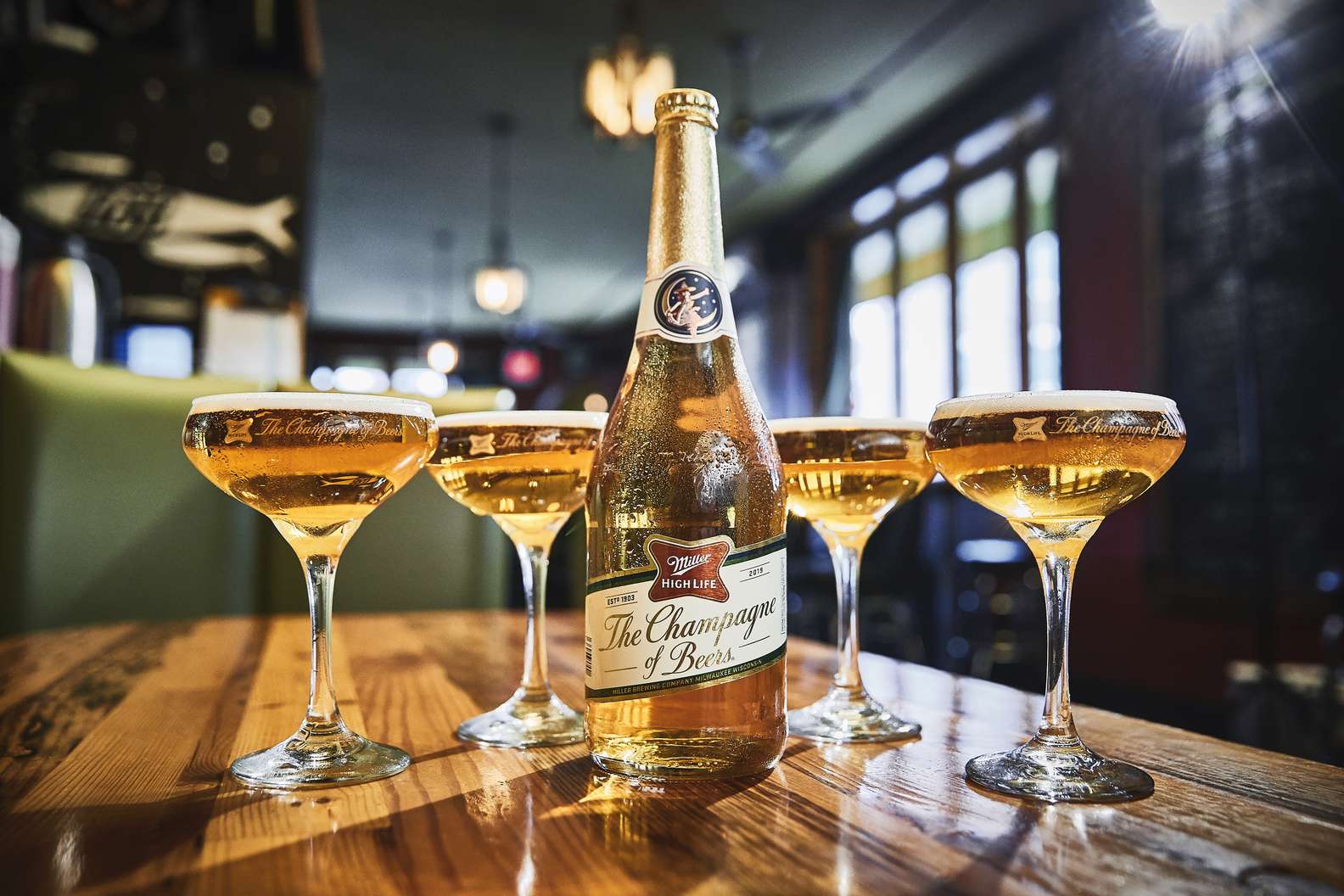“Champagne” Wars
The Comité Champagne, a joint trade association for the Champagne industry, took serious issue with Miller High Life’s slogan and requested the destruction of an entire shipment of the beers bound for Germany, arguing that the label “The Champagne of Beers” infringed on the protected designation of what “Champagne” is. The trade association argues the Wisconsin beverage’s slogan violates a European Union policy prohibiting the description of any beverage as “champagne” unless it originates from a particular region under protected geographic and origin designation rules. Regulation (EU) 1308/2013.

Image courtesy of Miller, photocredit to Thrillist.com
Bubbly History
According to Pernod Ricard, to be classified as true Champagne, the French sparkling wine, a beverage can only be made using three very specific grapes from the Champagne region in France: Chardonnay, Pinot Noir, and Pinot Meunier. The multi-step process produces a fermented, sparkling wine beverage often enjoyed by millions, if not billions, of consumers worldwide. Since 1887, only sparkling wine from the Champagne region may be classified as “Champagne.”
As for Miller High Life, the American creation has been around since 1903, filed for the federal trademark protection in 1956, and have marketed as “The Champagne of Beers” since 1969 due to its high carbonation and lighter taste – similar to actual champagne (VinePair).
What’s Next?
Since the destruction of the 2,352 cans of Miller High Life, without protest by any of the affected parties, the remnants of the cans and byproduct waste have been environmentally disposed of, and likely future orders have been placed on hold. While Miller was not necessarily trying to infringe upon the Champagne region or process, the region’s inhabitants took notice and acted.
Though the trademark is federally protected in the United States, it is apparently under scrutiny in trade partner nations. This may signal a step up in member countries of the European Union to police against and enforce the regulations in place against non-EU trademarks, slogans, and other brands.
If you have a mark, brand, or slogan, that may be in conflict with a foreign regulation, contact the office of Madan Law PLLC to discuss with one of our attorneys whether you may have an issue, and how to better protect yourself and your brand in foreign markets. Let Madan Law PLLC help you #MakeYourMark.
